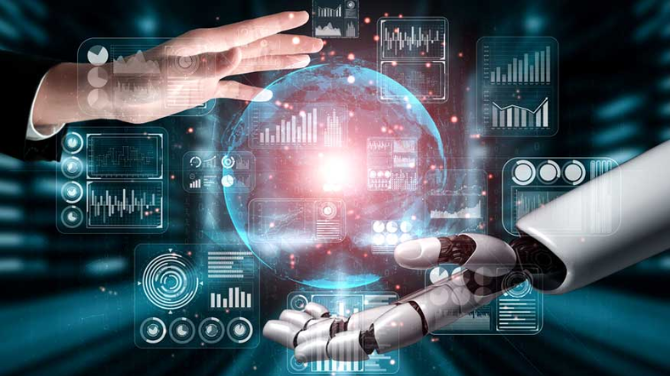How AI is Shaping the Future of Electric Utilities

June 05, 2024
 3134
3134
The electric utility industry is undergoing a significant transformation driven by the adoption of artificial intelligence (AI). AI technologies are enabling utilities to enhance their operations, improve customer experiences, and accelerate the transition to a more sustainable energy future. Here’s how AI is shaping the future of electric utilities:
- Predictive Maintenance
One of the primary applications of AI in electric utilities is predictive maintenance. AI algorithms analyze data from sensors and other monitoring devices to predict equipment failures before they occur. This allows utilities to perform maintenance proactively, reducing downtime and lowering operational costs. Predictive maintenance extends the lifespan of critical infrastructure, ensuring a reliable supply of electricity.
- Smart Grid Management
AI is integral to the development and management of smart grids. Smart grids use AI to analyze data in real-time, optimizing the distribution of electricity and improving the efficiency of the grid. AI can balance supply and demand, integrate renewable energy sources, and respond to outages more quickly. This leads to a more resilient and flexible grid that can better accommodate the complexities of modern energy demands.
- Energy Demand Forecasting
Accurate energy demand forecasting is essential for efficient grid management. AI models use historical data and real-time inputs to predict future energy consumption patterns. These forecasts help utilities plan for peak demand periods, reduce energy wastage, and manage resources more effectively. Enhanced forecasting capabilities also support the integration of renewable energy, which can be unpredictable.
- Enhancing Renewable Energy Integration
Renewable energy sources like solar and wind are variable and weather-dependent. AI helps utilities integrate these sources into the grid by predicting their output and adjusting other power sources accordingly. This ensures a stable supply of electricity even when renewable generation fluctuates. AI also facilitates the storage and efficient use of surplus renewable energy.
- Customer Engagement and Experience
AI-driven tools are revolutionizing customer engagement in the utility sector. Chatbots and virtual assistants provide instant support and personalized recommendations, enhancing customer satisfaction. AI can also analyze customer data to offer tailored energy-saving tips and identify opportunities for energy efficiency improvements. This proactive approach helps customers reduce their energy bills and carbon footprint.
- Grid Security and Cybersecurity
As the electric grid becomes more connected, cybersecurity is a growing concern. AI enhances grid security by detecting and responding to cyber threats in real-time. Machine learning algorithms can identify unusual patterns and potential vulnerabilities, enabling utilities to take preventive measures. This proactive defense helps protect critical infrastructure from cyber-attacks.
- Energy Trading and Market Operations
AI is transforming energy trading and market operations by providing real-time data analysis and predictive insights. AI algorithms can optimize trading strategies, forecast market trends, and make data-driven decisions, leading to more efficient and profitable trading. This benefits both utilities and consumers by ensuring competitive pricing and efficient market operations.
- Environmental and Sustainability Goals
AI supports utilities in meeting their environmental and sustainability goals. By optimizing energy usage, reducing waste, and improving the integration of renewables, AI contributes to a lower carbon footprint. Utilities can use AI to track their progress towards sustainability targets and implement strategies that align with global climate goals.
Conclusion
The integration of AI into the electric utility industry is driving significant advancements and reshaping the future of energy. From predictive maintenance to smart grid management and enhanced customer engagement, AI is enabling utilities to operate more efficiently, sustainably, and securely. As AI technologies continue to evolve, their impact on the electric utility industry will only grow, paving the way for a smarter and more sustainable energy landscape.